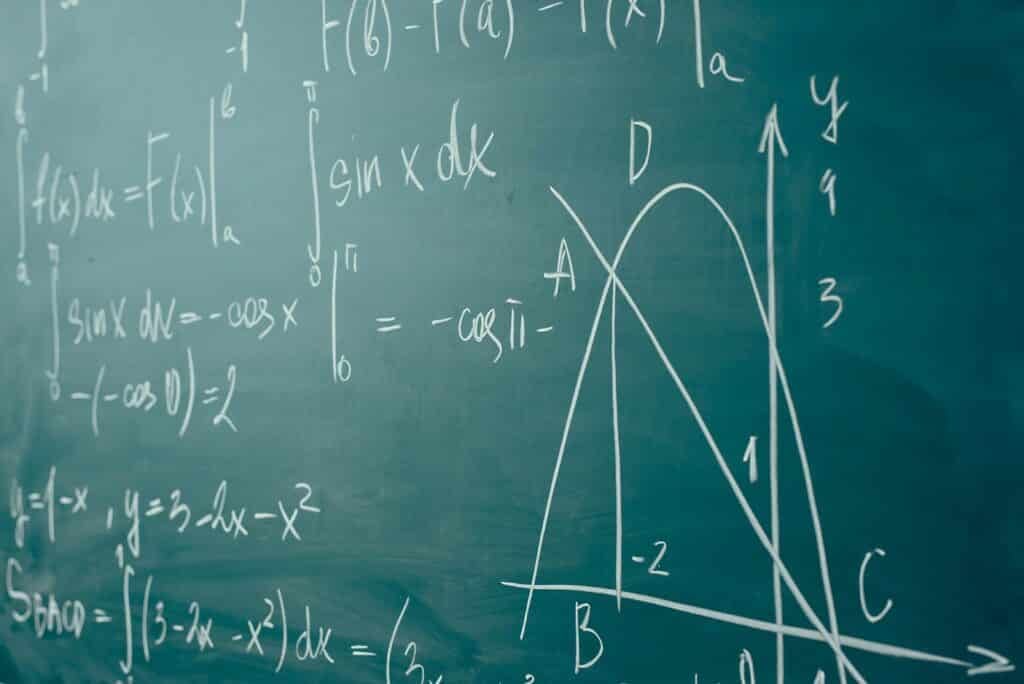
Jimmy Chin MasterClass Review: Adventure Photography
Do you want to learn Jimmy Chin’s trade secrets and become a skilled adventure photographer? Read our honest review of Jimmy Chin’s MasterClass and determine whether it’s a good fit for you.
Compared to other subjects, math requires a slightly different approach to learning. This also means you need specialized note-taking methods. Read our guide for how to achieve clarity in your math notes.
E-student.org is supported by our community of learners. When you visit links on our site, we may earn an affiliate commission.
Mathematics, which is often described as a universal language, elicits a wide range of reactions from students. Some people are eager to face its challenges, while others may be intimidated by complex equations and abstract concepts. Whatever side of the spectrum you fall on, one thing is certain: effective note-taking in math is critical for understanding and excelling in this subject.
In most subjects, like History or Language, students are taught how to take notes effectively. However, when it comes to math, the importance of a strategic approach to note-taking is sometimes overlooked. Instead, it is common practice to advise students to jot down every single detail, including concepts, formulas, and mathematical problems. Unfortunately, taking overly detailed notes can hinder rather than help students in math, regardless of their success in other subjects.
Math is distinct from many other subjects in that it demands a unique approach to note-taking, primarily due to its abstract nature and emphasis on problem-solving. Unlike subjects where text and narratives are central, math relies heavily on symbols, formulas, and logical sequences. These complex components require careful note-taking and interpretation to support the learning process and help retain information in the long run.
In this article, we will explore why math requires special attention when it comes to note-taking and provide you with valuable tips to enhance your math note-taking skills for a successful learning experience.
Let us look at some of the main reasons why having special note-taking tricks up your sleeve is essential for math success.
Mathematics is a subject filled with abstract concepts that can be tricky to understand and may make you feel like grasping at thin air. In this situation, taking effective notes serves as a link between these abstract concepts and tangible, understandable representations. You can start to slowly unravel the mysteries of mathematics by breaking these difficult concepts down into more manageable parts in your notes.
Math naturally follows a step-by-step procedure. Whether it’s Algebra, Calculus, or Geometry, mathematical problems typically involve a logical progression of steps that end with a solution. Your entire problem-solving process can be derailed by forgetting even one important detail. Thus, having well-organized notes is crucial for giving you a clear path to follow and preventing you from skipping any important steps during the problem-solving process.
The language of mathematics is essentially represented by symbols, notations, and formulas, each of which has a distinct meaning. To prevent confusion and misinterpretation later on, precise notation in your notes is crucial. The accuracy and consistency of the symbols you use in your notes help to increase the dependability of your mathematical calculations.
Math requires more than just conceptual understanding; practice and application are equally important. Mastering math relies on practice and repetition, and your notes should serve as a valuable resource. They should contain problem-solving tips, practice problem solutions, and key ideas for review, transforming into a valuable tool to enhance your understanding and mathematical skills through consistent practice.

Here are some pointers to help you effectively prepare for and begin taking notes on your math lessons, ensuring that you make the most out of your learning experience.

While there are not as many widely accepted note-taking techniques in math as there are in other subjects, there are still several techniques that will help you take better math notes. Here are a few helpful techniques:

Math is a unique subject that benefits from well-organized, visual, and comprehensive note-taking. Keep in mind that the best note-taking method for math can vary from person to person. So, try different techniques to find what works best for your learning style and needs. You can also combine several methods for a more comprehensive approach to taking math notes. The more effort you invest in your math notes, the better equipped you will be to tackle math challenges and excel in your studies.


Do you want to learn Jimmy Chin’s trade secrets and become a skilled adventure photographer? Read our honest review of Jimmy Chin’s MasterClass and determine whether it’s a good fit for you.

In today’s review, we’ll guide you through N.K. Jemisin’s MasterClass will tell you everything you need to know to determine if this online writing class is for you.

I took Will Bryant’s illustration course on Skillshare to try to upgrade my skills in this department.